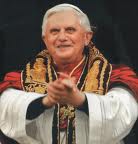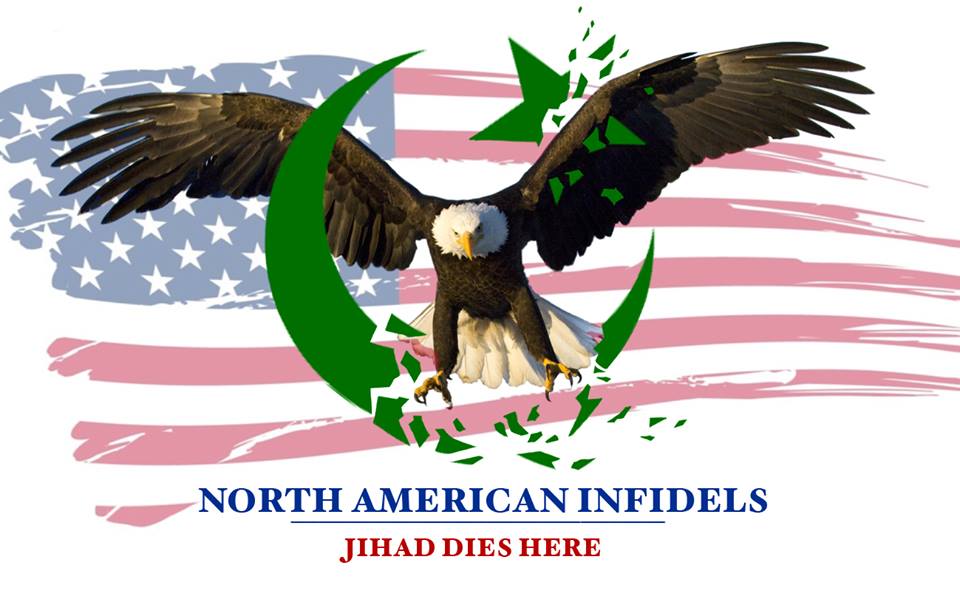Vatican Decries Plight of Mideast Christians
By RACHEL DONADIO
Published: June 6, 2010NICOSIA, Cyprus — In a document presented here on Sunday by Pope Benedict XVI, bishops from across the Middle East called on Christians to become a dynamic minority in a conflict-ridden region and attributed their declining population here to “instability” caused by the Israeli-Palestinian conflict, the war in Iraq and unrest in Lebanon.
It also lamented the rise of “political Islam,” and said Christians suffered in countries where Muslims often “make no distinction between religion and politics.”
Benedict’s five-year-old papacy has been marked by tensions with Muslims and Jews, which his visit last year to Jordan, Israel and the Palestinian Territories did not entirely put to rest. The document issued Sunday, a working paper for a meeting of bishops to be held in Rome this fall, touched on some of the most contentious issues of Mideast politics and seemed poised to elicit controversy.
Ending his three-day visit to Cyprus, Benedict also made a “personal appeal for an urgent and concerted international effort to resolve the ongoing tensions in the Middle East, especially in the Holy Land, before such conflicts lead to greater bloodshed.”
The first visit by a pope to Cyprus was aimed at strengthening ties between the Catholic and Orthodox churches and calling attention to the situation of Christians in the Middle East.
But even as the pope called for peace and dialogue, the weekend was darkened by the killing in Turkey on Thursday of Bishop Luigi Padovese, 62, the head of the Turkish bishops conference and one of the authors of the document. His Turkish driver has been arrested and charged with the crime. The pope has played down the killing as a “personal” matter and not driven by religious or political motives, although the details surrounding the death remain unclear.
In recent decades, the percentage of Christians in the Middle East has fallen from 20 percent of the population to less than 5 percent, and the number is dropping.
“Today, emigration is particularly prevalent because of the Israeli-Palestinian conflict and the resulting instability throughout the region,” the bishops’ document said. “The menacing social situation in Iraq and the political instability of Lebanon further intensify the phenomenon.”
It also said that the Israeli occupation of the Palestinian Territories created “difficulties in everyday life, inhibiting freedom of movement, the economy and religious life,” as well as making access difficult to some Christian holy sites in the West Bank, such as the Church of the Nativity in Bethlehem.
Israel’s ambassador to the Vatican, Mordechay Lewy, said the document’s assessment of the situation of Christians in Israel and the Palestinian Territories was “more or less realistic,” but he dismissed the idea that the Israeli-Palestinian conflict was the main cause of Christian flight.
“We reject any view which pinpoints the conflict between the Palestinians and us as the source of every instability in the region,” he said. “The region is also unstable without this conflict.”
In a passage that seemed aimed at American evangelicals, the document said that “certain Christian fundamentalist theologies use sacred scripture to justify Israel’s occupation of Palestine, making the position of Christian Arabs an even more sensitive issue.”
The Italian-language version of the passage was more critical of Israel and said that scripture should not be used “to justify the political injustice imposed on the Palestinians.”
The Vatican spokesman, the Rev. Federico Lombardi, said both versions were official. “They are rather different,” he acknowledged. “But this is a working document.”
The document was written by a dozen bishops and top Vatican officials, including the Latin Patriarch of Jerusalem and bishops from Egypt, Syria and Iran, based on comments submitted by bishops across the Middle East before a month-long bishops’ meeting in Rome in October.
Benedict sees Christians “not as a minority in decline, but as a creative minority,” said Andrea Riccardi, the founder of the Community of Sant’Egidio, a lay Catholic group active in interreligious dialogue which helped organize the pope’s visit to Cyprus.
“The Christian minority in the Middle East is important to prevent Muslim totalitarianism.”The document said relations between Christians and Muslims were often difficult “principally because Muslims make no distinction between religion and politics, thereby relegating Christians to the position of being considered non-citizens, despite the fact that they were citizens of their country long before the rise of Islam.”But Adnane Mokrani, a Tunisian Muslim who teaches Islamic studies at the Pontifical Gregorian University in Rome, said the link between religion and politics came from “history and culture” more than Islam. “The real problem is dictatorship which often tries to justify itself using religion and nationalism,” he said.
Adnane, Islam is a complete way of life, which includes a political aspect. Save the con.



Pislam will wipe out catholicism, the vatican and “the peup” if they have their way. Then the genocide will start and the number of christians in Europe will also start to drop like in MENA. One day the percentage of christians in Europe might also be below 5%. I probably will not live that long to experience this horror and that might be as well. But I weep for future generations that has to live with this hell being persecuted dhimmis frpm the cradle to the grave in an neverending nightmare.
I remember reading a few years ago of arselifters bragging of building moskes in Rome and claiming the Pope could do nothing.
It’s only taken the church 60 years or more to admit openly that islam is attacking Christians with wild abandon…..what a bunch of slackers! While Christians have been “turning the other cheek” they have been getting the crap killed out of themselves. The only way to deal with islam is to kill it….root and branch. It can bear no fruit but poison and misery. It must be destroyed…totally.
It took the Christians 466 years to react to the arselifters’ previous assaults with the Crusades. So don’t expect an overnight miracle.
I stand with you proud infidel the only solution to the muslim problem is a mushroom cloud!!!
Don’t worry, they’ll get mushrooms soon enough so that the whole MENA will become one big pizza pie!
They probably don’t really care. Have a different agenda? Didn’t they just recently condemn Israel regarding the flotilla attacks? So confusing…. (intentionally?)
Chris, you can add Cardinal George Pell, Archbishop of Sydney to that list.
http://www.theage.com.au/articles/2004/11/11/1100131136231.html
http://www.smh.com.au/news/national/pell-challenges-islam–o-ye-of-little-tolerant-faith/2006/05/04/1146335872951.html
http://ncronline.org/blogs/all-things-catholic/cardinal-pell-islam-and-translations
Sure thing Gary, first thing in the morning. I have to call it a night. 🙂
Thanks for the information.
Done.
Thanks for doing that Chris.
Your are welcome.
finally, the church is starting to say something. If they want more membership then here is their chance. I read somewhere where it’s easyer to unite people through a common hatred than through a shared loyalty. Well nothing like getting lack luster Christens on board than to give them a reason to be pissed and it’s the right thing to boot. Also start doing what the muslims have learned to do so well and that’s to spin things. This will take the attention of a few priests doing boys to all the priests doing something for humanity..elmore
Is that in the same way that arselifters are united by hate?
Gary,I am afraid so. Hate the sin love the sinner. Hate what Islam represents love the muslims and hope that they will ????? Oh yea muslims are not going to change what mohammad told them to do. Looks like there is going to be a come to Jesus meeting and either Christens and all tolerant religions stand up and fight or we might as well give up. There is nothing wrong with hating evil. And yes that is just what holds Islam together, hate, they do have the advantage in that department..elmore
I wonder if its possible to get these Christian leaders to network with each other? Or to hold some sort of symposium and come up with a formulated response to pislam.
They all seem to know something but getting their stories straight and working together with a coordinated response to counter pislam will certainly help.
Too bad the Pope doesn’t issue fatwas. 😉
Just papal bulls, which don’t have near the teeth of a good fatwa, naw the Catholics gotta upgrade, get with the 21st, dig up Torquemada, he was ahead of his time.
Its never too late to bring it back. The Pope’s encyclicals aren’t doing much good.
Let Torquemada and Ahmadinnerjacket battle it out. May the best man win.
Muslim males are the biggest hypocrites in the world. Muslim males fall on their faces, point their dirty hinders toward the sun and pray to Satan. How do I know it’s Satan that Muslim males pray to? It’s easy to figure out.
Islamism gives the Muslim males the right to beat their wives if the wives irritate them. The wife cannot strike back, or even defend herself.
Islamism gives the hypocritical Muslims the right to murder their daughters in an Honor Killing. The daughter may be murdered for the slightest reasons: maybe she smiled at an infidel boy, or failed to wear a Muslim rag on her head, or because she’s wearing Western clothes. That’s Islamism for you.
Islamism gives the Muslim males the right to relegate all Muslim women to second class status or worse.
The hypocritical Muslim male sex perverts are allowed to literally kidnap little girls, then legally force the little girls to “marry” the depraved Muslim male sex perverts. After the forced marriage is performed to Muslim male sex perverts, the little girls as young as seven years old, are then legally raped by said depraved Muslim males. All this is legal in Islamism. Comment: I have changed Islam to Islamism because it rhymes with Nazism and Communism. These three idiologies are about equal when it comes to depravity, cruelty, and wickedness.
Islamism allows Muslims to murder an apostate who no longer wishes to participate in the Criminal Activity of Islamism. What I have mentioned above is criminal activity, but there is much more.
There are dozens of sects in Islamism, and each sect is a Crime Syndicate.
In Islamism, a petty thief can have his feet and hands cut off, and his eyes gouged out. This isn’t political. This is Islamic criminal activity, so is legally raping little girls, legally murdering a daughter in an Honor Killing, or legally murdering an apostate.
Depraved Muslim male sex perverts are allowed to commit adultery with impunity. Depraved Muslim males may “marry” several female playmates and have sex with them. Polygamy is adultery. If Muslim women “married” several male playmates, she would be stoned to death for adultery. So you see, only the Muslim males are allowed to commit adultery.
WE MUST DESTROY THE CRIMINAL ACTIVITY OF ISLAMISM BEFORE THE CRIMINAL ACTIVITY OF ISLAMISM DESTROYS US.
WE MUST DESTROY ALL THE CRIME SYNDICATES OF ISLAMISM BEFORE THE CRIME SYNDICATES OF ISLAMISM DESTROY US.
Again I totally agree with you Truth Detector!! I want our gov’t to initiate the Truman policy which states: In order to save countless lives the use of the atomic bomb is hereby authorized and will be used on ramadan at mecca!!!
It seems the Vatican is slowly waking up again –
http://www.lasvegassun.com/news/2010/jun/08/vatican-says-world-ignores-christians-in-mideast/
@Gary
We have been working on this networking unity problem for a while now. Christians are very proud and afraid. Too proud to associate with other churches they do not totally agree on, and too afraid to keep going after the issue. Moslems don’t care about one speech, one sign, one comment, then they threaten you and you shut up. Works well for them. What it will take is Christians willing to die, be persecuted, attacked, and keep fighting the dhimmi demon. http://www.doveworld.org/
We are going down fighting… there have to be more churches with courage out there! ISLAM IS OF THE DEVIL. Jesus is the only Way.
come to think of that , i never considered it in that way before